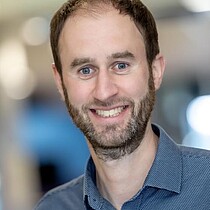

Article: Tuesday, 04 February 2025
The transition to a low-carbon future is one of the most urgent and complex challenges of our time. Yet, despite significant progress in science and technology, myths about the energy transition persist, slowing progress and clouding judgment. Dr Steve Kennedy from Rotterdam School of Management, Erasmus University (RSM) confronts six common misconceptions, explaining why they matter and how we can move beyond them to drive effective climate action. Read the full blog here.
Take the widespread belief that aiming to limit global warming to 1.5 degrees Celsius is unnecessary. Dr Kennedy explains that surpassing this critical threshold risks triggering climate feedback loops – from melting Arctic ice to thawing permafrost – that accelerate warming and compound its effects.
Or consider the myth that renewable energy isn’t truly sustainable because of its embodied energy. Studies show that the energy and carbon payback time of solar and wind technologies is minimal compared to their decades-long benefits. Additionally, Dr Kennedy highlights the importance of responsible project design to mitigate potential environmental and social impacts.
Other myths, such as the high cost of mitigation or the over-reliance on carbon capture and tree planting, also distract from evidence-based solutions that are both affordable and essential. Dr Kennedy’s insights cut through the noise, offering a clear-eyed view of the challenges and opportunities in the energy transition. Are you ready to separate fact from fiction?


Science Communication and Media Officer
Rotterdam School of Management, Erasmus University (RSM) is one of Europe’s top-ranked business schools. RSM provides ground-breaking research and education furthering excellence in all aspects of management and is based in the international port city of Rotterdam – a vital nexus of business, logistics and trade. RSM’s primary focus is on developing business leaders with international careers who can become a force for positive change by carrying their innovative mindset into a sustainable future. Our first-class range of bachelor, master, MBA, PhD and executive programmes encourage them to become to become critical, creative, caring and collaborative thinkers and doers.
